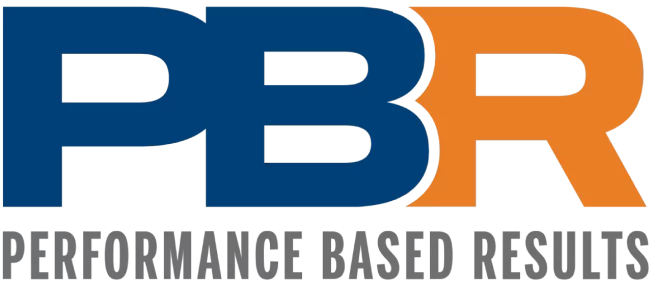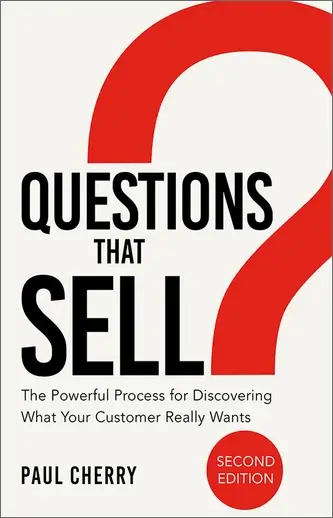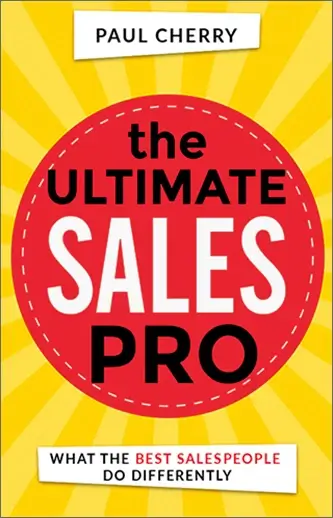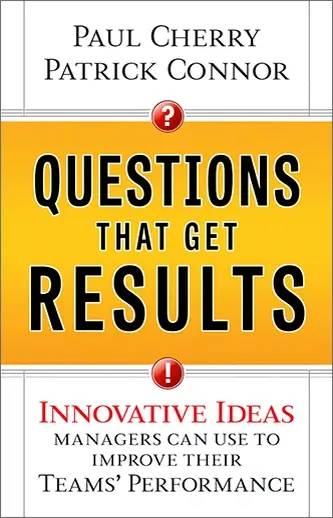Establishing a strong sales culture takes more than simply aiming for ambitious goals. It’s about cultivating a workplace where teams feel valued, energized, and driven to surpass their objectives.
A truly effective sales culture fosters teamwork, promotes creativity, and consistently delivers high performance. Establishing this type of culture is crucial for businesses looking to achieve sustainable growth. It begins with strong leadership and a clear vision.
Sales leaders must model the behaviors they expect from their teams, showing commitment to individual and collective success. By cultivating an atmosphere of accountability and support, leaders can ensure that every team member is aligned with the company’s goals and motivated to contribute their best efforts.
What is Sales Culture, and Why It Matters?
Sales culture refers to the collective mindset, values, and behaviors that shape a sales team’s operation. It’s the foundation that influences everything from motivation to performance.
A strong sales culture fosters collaboration, drives innovation, and aligns the team with the company’s goals. When nurtured properly, it creates an environment where employees feel supported and empowered to excel.
This culture is critical because it directly impacts not just team morale but also long-term success.
Leadership’s Role
Effective sales leadership begins with clear communication. Leaders must articulate the company’s goals and align their team’s efforts with those objectives. This creates a shared sense of purpose, allowing each team member to understand their role in the bigger picture.
One powerful tool for this alignment is a well-structured sales strategy presentation, which outlines the company’s vision and how each salesperson can contribute to its achievement.
When leaders communicate with transparency and clarity, they foster trust—one of the most vital elements in any thriving sales culture. Beyond communication, great leaders invest in their teams.
They provide the necessary tools, training, and resources to help their salespeople grow professionally and personally. This investment goes beyond simple skills development. It’s about nurturing confidence and fostering a continuous learning mindset.
In doing so, leaders inspire their teams to take ownership of their growth and contribute meaningfully to the company’s success.
Align Values and Goals
Aligning values and goals is a big step in building a successful sales culture. When a company’s values are deeply embedded in its operations, they become the guiding principles that shape every action, decision, and interaction within the organization.
This alignment between values and goals can drive meaningful results for a sales team, creating a unified sense of purpose that motivates individuals to work toward shared objectives.
At its core, aligning values and goals means ensuring that each team member’s personal values resonate with the company’s mission.
This creates a strong foundation where everyone is working not just to meet targets but to contribute to something greater. Sales teams operating with this alignment often exhibit higher engagement, collaboration, and commitment levels.
The Impact of Sales Culture on Employee Engagement
The culture within a sales organization has a profound impact on employee engagement. A well-defined and positive sales culture is more than just a backdrop—it’s the driving force that shapes how teams interact, collaborate, and perform.
When a company fosters a sales culture rooted in support, accountability, and shared values, it directly influences its employees’ engagement level. Engagement flourishes when employees feel valued and connected to the company’s mission.
A strong sales culture creates an environment where team members feel empowered to contribute ideas, take ownership of their roles, and push for continuous improvement. Sales professionals who are part of a culture that encourages collaboration and innovation are more likely to feel invested in their work.
3 Key Elements of a Winning Sales Culture
A winning sales culture is built on three foundational elements that drive success: leadership, collaboration, and continuous development. Strong leadership sets the vision and inspires teams to strive for excellence.
Collaboration fosters a sense of unity, where team members support each other to achieve common goals. Lastly, a commitment to continuous development ensures that skills always improve, keeping the team competitive and motivated.
These elements create an environment where sales professionals feel empowered, engaged, and aligned with the company’s mission, leading to consistent performance and growth.
Implement Recognition and Reward Systems
Recognition and reward systems are essential for creating a motivated and high-performing sales team. When employees feel their efforts are acknowledged and valued, it boosts morale, enhances engagement, and drives them to deliver strong results.
These systems also play a critical role in helping teams overcome sales challenges, as they incentivize creative problem-solving and perseverance through difficult periods.
Implementing a well-structured recognition and reward program can have a profound impact on individual performance and the overall success of the sales organization. At its core, recognition is about appreciating and celebrating your team’s hard work, achievements, and contributions.
Whether a simple acknowledgment of a job well done or more formal recognition such as employee awards, showing appreciation fosters a positive work environment.
Employees who feel appreciated are more satisfied and more likely to stay loyal to the organization, reducing turnover and increasing team stability.
Foster Open Communication and Feedback
Open communication and regular feedback are vital components of a thriving sales culture. Creating an environment where team members feel comfortable sharing ideas, asking questions, and providing input can significantly impact individual and team success.
When communication flows freely, it fosters trust, collaboration, and a sense of belonging—critical factors keeping sales teams motivated and engaged. Encouraging open dialogue starts with leadership.
Sales leaders must lead by example, being transparent in their decisions and clear in their expectations. When leaders communicate openly, they create a culture where honesty is valued, and employees feel safe expressing their thoughts without fear of judgment.
Provide Continuous Training and Development
In the dynamic sales landscape, continuous training and development are imperative for sustaining a competitive advantage.
As markets evolve and consumer preferences shift, equipping your sales team with the latest skills and knowledge ensures they remain effective and responsive to changing dynamics.
A commitment to ongoing education enhances individual performance and fosters a culture of growth and adaptability within the organization. At the heart of a robust training program is recognizing that sales techniques and tools constantly evolve.
Regular training sessions can cover various topics, from mastering new technologies and platforms to honing negotiation skills and understanding customer psychology. By investing in your team’s development, you empower them to tackle challenges with confidence and creativity, ultimately leading to improved results.
3 Strategies for Building a Winning Sales Culture
Creating a winning sales culture is a transformative journey that shapes an organization’s foundation. It involves cultivating an environment where collaboration, motivation, and shared values thrive.
Leaders can inspire their teams to excel by prioritizing the development of meaningful relationships, enhancing communication, and supporting continuous growth.
A strong sales culture drives performance and fosters employee satisfaction and loyalty. Ultimately, investing in this culture paves the way for sustained success and a cohesive team united by a common purpose.
1. Promote Collaboration Across Sales Teams
Promoting collaboration across sales teams is a cornerstone in building a winning sales culture. In today’s interconnected marketplace, fostering teamwork can unlock untapped potential and drive remarkable results.
When team members work together, they combine their strengths, share insights, and create a synergy that enhances overall performance. Encouraging collaboration begins with establishing a shared vision and clear goals.
When team members understand the organization’s objectives, they can align their efforts and support one another in achieving these common targets.
Regular team meetings, brainstorming sessions, and collaborative projects can be platforms for open dialogue, allowing team members to share ideas and develop innovative solutions.
2. Adopt a Customer-Centric Sales Approach
Adopting a customer-centric sales approach is pivotal in building a winning sales culture. In an era where consumers have more options than ever, prioritizing the needs and preferences of customers is essential for establishing long-term relationships and driving sustainable success.
A customer-centric mindset places the client at the heart of every sales strategy, fostering an environment where understanding and fulfilling customer needs are the primary focus. To implement this approach, sales teams must invest time understanding their customers deeply.
This means going beyond surface-level interactions and actively listening to clients’ challenges, goals, and desires. Engaging in meaningful conversations allows sales professionals to tailor their solutions effectively, demonstrating genuine care for the customer’s success.
3. Leverage Technology to Enhance Sales Processes
Harnessing technology to optimize sales processes has become vital to cultivating a winning sales culture in today’s rapidly evolving business landscape.
As digital advancements reshape how organizations conduct business, those that embrace cutting-edge tools can streamline operations, boost efficiency, and ultimately achieve superior outcomes.
Integrating innovative technologies into the sales framework can transform how teams interact with customers, manage leads, and assess performance. For instance, Customer Relationship Management (CRM) systems serve as comprehensive databases for storing vital customer information, enabling sales representatives to access essential data quickly.
This fosters personalized communication and helps track customer interactions, ensuring every opportunity is capitalized upon.
FAQ
What is a sales culture?
A sales culture refers to the shared values, beliefs, and practices that shape how a sales team operates and interacts internally and externally.
It encompasses the attitudes and behaviors of individuals within the organization, driving their approach to selling products or services. A robust sales culture not only fosters a high-performance environment but also aligns the team’s goals with the organization’s overall mission.
At its core, a positive sales culture emphasizes collaboration, accountability, and continuous improvement. When team members are encouraged to work together, share insights, and support one another, innovation thrives.
How can I assess my current sales culture?
Assessing your current sales culture is essential in understanding how effectively your team operates and how aligned their values are with your organization’s goals. Begin with qualitative insights by conducting surveys and interviews with team members.
Ask open-ended questions about their experiences, challenges, and perceptions of the current sales environment. This approach provides a platform for honest feedback and can reveal underlying issues that may not be immediately apparent.
Encourage transparency and create a safe space for employees to voice their thoughts without fear of repercussion. Next, observe the interactions within your sales team. Pay attention to how team members communicate, collaborate, and share information.
Are they working in silos, or do they actively support one another? A culture that fosters collaboration and open communication is a sign of a healthy environment, while a lack of interaction may indicate room for improvement.
What are the common challenges in building a sales culture?
Building a robust sales culture is a transformative endeavor, yet it comes with its fair share of challenges. Understanding these obstacles can equip leaders to foster a thriving environment that empowers teams to excel.
One of the most significant challenges is resistance to change. Sales teams may have entrenched habits and processes that have served them well. When new strategies or methodologies are introduced, some team members might hesitate to adopt them, fearing disruption or questioning their effectiveness.
This resistance can create friction and hinder the progress of cultural transformation. Another common hurdle is a lack of alignment between leadership and sales teams.
If leaders do not actively embody the values and behaviors they wish to instill within the sales culture, it can lead to confusion and disillusionment among team members.
How long does it take to build a winning sales culture?
Building a winning sales culture is a journey rather than a destination, and the timeline for achieving this transformation can vary widely based on several factors. While there is no one-size-fits-all answer, understanding the dynamics involved can provide valuable insights into the process. First and foremost, the starting point plays a crucial role.
Organizations with a foundation of trust, collaboration, and effective communication may see faster results. Conversely, companies struggling with significant cultural challenges might require a longer commitment to change.
If the existing culture resists new ideas or practices, shifting mindsets and behaviors may take several months or even years.
Conclusion
In a sales landscape characterized by fierce competition, establishing a thriving sales culture represents a vital cornerstone for long-lasting success and growth. This conversation has explored key strategies that serve as the foundation for this cultural shift.
By fostering collaboration among sales teams, prioritizing a customer-centric approach, and leveraging technology to enhance sales processes, organizations can create an environment that empowers individuals and teams to achieve remarkable results.
As you embark on this journey, remember that cultivating a winning sales culture is a shared responsibility. Foster team engagement, promote transparent communication and prioritize development initiatives.
With patience, commitment, and strategic implementation, your organization can create a vibrant sales culture that surpasses expectations, delivers exceptional results, and positions your business for future success. Embrace this opportunity and watch the profound impact of a winning sales culture unfold.






